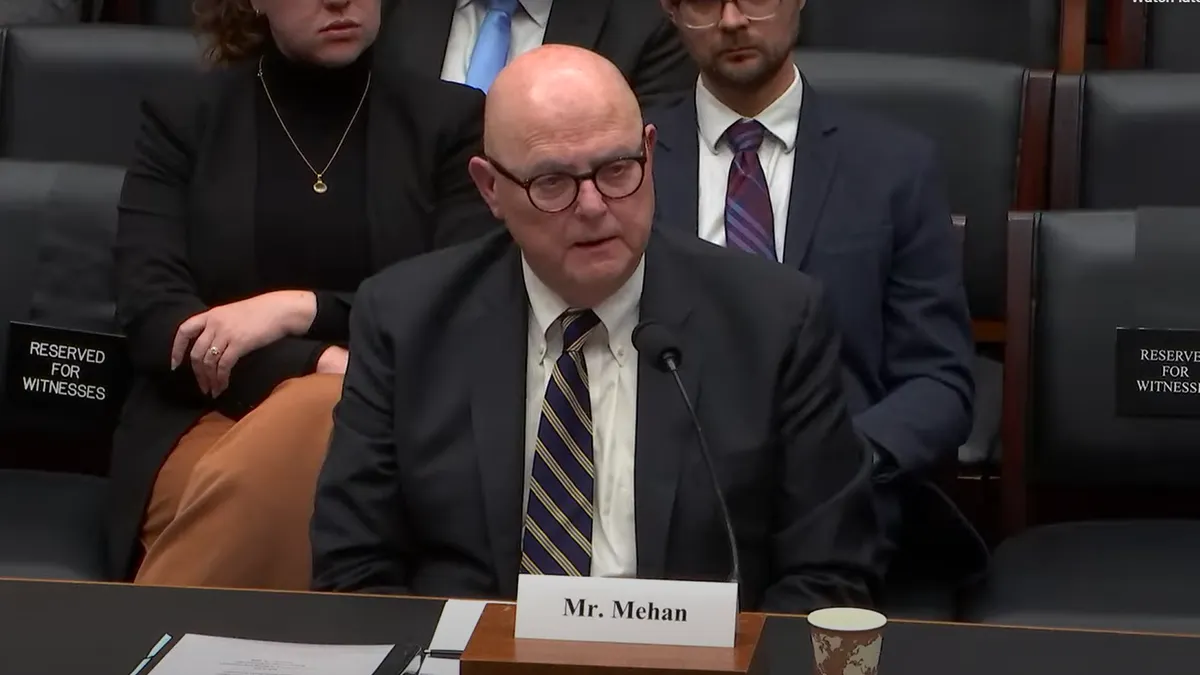The RecycLA transition may technically be done, but challenges with the controversial Los Angeles franchise system are far from solved.
After months of complaints, the Los Angeles City Council's Energy, Climate Change and Environmental Justice Committee held a public hearing on Feb. 6 to address complaints of missed service, steep rate hikes and surprise fees.
It lasted for more than six hours.
The first two-and-a-half hours featured public comment from dozens of speakers — ranging from staunch supporters such as the Los Angeles Alliance for a New Economy and local food recovery organizations that have benefited, to some of the property managers and apartment associations that are seeking the system's repeal.
Prior to the meeting, the Bureau of Sanitation (LASAN) released a progress report with a wealth of details on what the program had yielded so far and where it went wrong.
Highlights included the amount of recyclable material collected, new low-emissions trucks purchased, food recovered for donation, onboard technology installed in trucks and infrastructure investment underway.
LASAN's report also outlined how the pattern of "service not complete" complaints, which have now totaled more than 28,000, peaked in December. This led LASAN to dispatch its own trucks to service missed accounts on at least 150 occasions.
The companies that experienced the most complaints were those with multiple zones: Waste Management, Republic Services and Athens Services. The ongoing discovery of more tonnage and more customers than expected was said to create a compounding effect.
According to LASAN, service providers have encountered nearly 8,000 more accounts than anticipated so far. Though many believe the true number is likely higher because multiple unlicensed haulers continue to operate in the city.
Another primary focus was on why customers have seen such sharp price increases. Following a trend reported by Waste Dive last month, waste assessments have now been completed for the majority of accounts but less than half of those have resulted in signed service agreements. That means customers are eventually auto-enrolled, sometimes with fees for gate access or container retrieval that could have been avoided.
While LASAN reports that 67% of accounts have no fees at all, those that do are seeing sharp increases. An LASAN "Billing Review Strike Team" has been working to assess hundreds of accounts to help customers mitigate these costs. This process remains ongoing, with haulers waiving some fees and not others.
Though it may still be too early to assess trends, the larger companies with multiple zones appear to be the most common factors in many of these pain points. Waste Management and Republic have experienced the most service complaints. Athens has some of the lowest percentages of waste assessments resulting in signed agreements. Republic and Athens have the highest percentages of accounts billed with fees.
All of this made the companies prime targets for council members who were frustrated by fielding complaints for months and potentially regretful about voting to approve RecycLA back in Dec. 2016.
"This has really been an embarrassment for the council and especially those of us who supported the program," said Council Member Paul Koretz. "It's really been something that I never would have envisioned going this badly in my wildest dreams."
Hauler Perspective
When it came time to speak, representatives for the seven service providers were both apologetic and steadfast. This was the first time that many of them had addressed RecycLA publicly since it began in July 2017.
They said overall service rates were still good for the largest known transition of its kind in modern history and that they were essentially just following contract terms.
Below are some highlights from hours of company testimony. CalMet Services, Universal Waste Services, NASA Services and Ware Disposal — all servicing one zone apiece — spoke first with no questions from the council members.
CalMet
- Servicing 1,300 customers as of January, 25% more than expected.
- CalMet bought accounts and containers from seven companies.
"I hate to hear that I’m price-gouging. It angers me, because it’s not true," said JB D'Souza, vice president and co-owner. "I'm doing what the contract asks of me to do."
D'Souza said she was very proud of her staff's accomplishments so far, but wanted more support from the city.
UWS
- Servicing 6,170 customers as of January, 5% more than expected.
- UWS bought route lists and assets from eight non-RecycLA haulers, as well as assets from all six of the RecycLA companies.
UWS emphasized "the magnitude" of this transition. This included the creation of 127 new jobs, purchase of thousands of new containers and construction of a $30 million material recovery facility slated to open this summer. As for fees, the company said it had worked to keep them low and was open to dialogue with the city.
"If there's a way to come to some kind of a resolution that allows us to maintain the revenue needed to meet the program requirements, but also allows the customers the opportunity to save some money and to make this more affordable and successful, we remain committed to do that," said Executive Vice President Matt Blackburn.
NASA
- Identified 2,400 customers as of February, 38% more than expected.
- NASA reached agreements with 21 non-RecycLA haulers to acquire containers and compactors, and hire employees.
Judi Gregory, zero waste director, said illegal haulers continued to be a problem in NASA's downtown district and more city assistance was needed. Like the others, she urged against changes to the rate structure.
"If we are going to be here working hard to make sure that we're meeting the expectations outlined in the contract we need to know that the amount of revenue that we had budgeted will continue to be there to support the programs and services that we’re providing," she said.
Ware
- Identified 2,140 customers as of February, nearly 9% more than expected.
- Ware bought routes and containers from seven companies.
Like others, Ware talked about difficulties with surprise customer and volume increases, while also noting its progress on recycling and other contract requirements.
"We remain honored to have been selected to participate in the nation’s most aggressive and comprehensive commercial delivery system and welcome the challenge it presents on a daily basis," said General Manager Jay Ware.
Athens Services
- Servicing 22,600 customers in three zones as of January, 9% more than expected.
- Athens divested 13,000 accounts and acquired assets from 17 companies.
So far, Athens has purchased 130 new trucks and brought on 350 employees. During both initial statements, and follow-up questions, the regional leader stood by its overall service record. Athens also said it hadn't been charging customers for contamination or overfills so far.
"I'm not in any way attempting to downplay or evade the responsibility of our customer service missteps, rather I want to assure the committee that our internal customer service stats tell a different story than what’s being portrayed in the press," said Cesar Torres, regional vice president of operations. "RecycLA’s not perfect, but it's working."
Republic Services
- Servicing nearly 20,000 customers in two zones as of January, 22% more than expected.
- Republic acquired an estimated 3,000 containers and 2,500 accounts from seven companies.
To cope with almost 30% more volume than expected, Republic had to bring in 45 additional vehicles and nearly double its staffing plan. Susanne Passantino, area manager for the company, said normally a transition of this size would take much longer than six months.
"I don't know if people really understand the complexity of what that means," she said. "My two zones alone were two-and-a-half times the size of the city of San Jose."
Passantino said the goal was to get all service agreements signed by July 1, with the hope of finding the best options for each customer to help reduce costs. Like Athens, she also said that compared to the overall number of services being performed, the company's complaint rate was still low.
Waste Management
- Servicing nearly 17,000 customers in two zones as of January, 8% more than expected.
- Waste Management bought routes and containers, and hired drivers, from two companies.
Like Republic, Waste Management also had to bring in dozens of vehicles from around the region and hired an estimated 150 new people. More than $50 million has been spent on trucks, containers, natural gas fueling infrastructure and new processing facilities so far. $500,000 in free service has been provided and an additional $500,000 in credits have been returned.
Doug Corcoran, director of public sector services, urged council members not to roll back the program.
"Frankly we got whipsawed and we didn't have the resources that we needed to deal with that," said Corcoran. "We got our arms around it. It should have knocked us out. It didn't knock us out and we're taming the beast."
Next steps
Following testimony from the three large haulers, council members were withering with their criticism after months of constituent complaints.
"I'm not interested in any more excuses. I’m here to just simply say you will be held accountable when it comes to this contract. You are going to make a lot of money from this or else you would not have participated in this franchise," said Committee Chair Nury Martinez.
Representatives from the three companies said they recognized the frustration, and were now fully staffed to avoid new service complaints, but also pushed back on the notion that a transition of this size was doable in such a short timeframe.
"We're as sophisticated as it gets in this business and we’re as capable as it gets in this business. The one thing that changed here is this sea change, this paradigm shift, and this shuffling of 80-plus-thousand accounts all in a brief period of time," said Corcoran.
With everyone sharing some level of complicity, both for setting these terms and then saying they could be met, there were no easy answers at the end of a long afternoon. By the time LASAN came up for final testimony, the agency eschewed its full presentation and struck a similarly deferent tone
"In 20 years either we will be or we should be out of the landfilling business," said Director Enrique Zaldivar. "But does it really matter what that larger calling is if we cannot take care of the most fundamental element of the program, like service? No, it doesn't matter."
As of Feb. 1, LASAN can technically begin enforcing financial penalties for service complaints though none have been publicly issued yet. Instead, the committee entered a long list of reporting requirements, cost-saving feasibility studies, environmental reviews and logistical fixes into the record for further work.
Despite the hope of some in the room, both from L.A. and beyond, no plans were agreed upon to repeal the program or revoke contracts. No commitments were made and no clear solution was arrived at, other than a pledge for accountability and a hope that the transition would get easier. Though pressure has been building to take more aggressive action from editorial boards at The Wall Street Journal, Los Angeles Times and elsewhere.
In closing, Martinez said it was everyone's duty to hold both the city and the haulers accountable for this massive experiment they had all created.
"We just can’t preach about environmental justice and environmental benefits and being leaders of recycling," she said. "When some of the very basics things that we need to do like picking up the trash has become a challenge."
Correction: A prior version of this story misstated Zaldivar's title as "executive director."


















